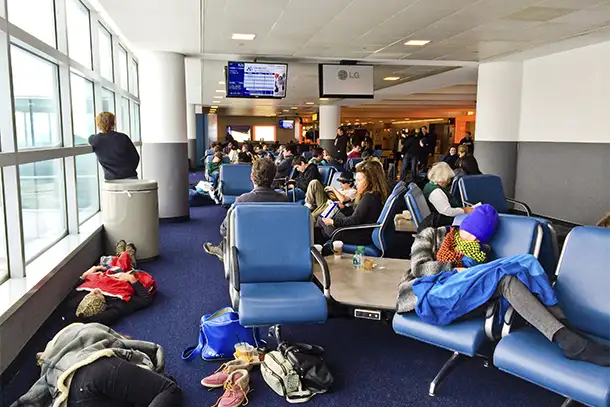
Airline quality. Quality airline. Either way, that combination of words will strike many flyers as an oxymoron.
Still, there are higher- and lower-quality airlines. And for travelers, it’s worth knowing which are which. While there are any number of studies and surveys that attempt to provide clarity on the perennial best/worst-airline question, none have proved definitive.
For example, the annual Airline Quality Rating study, a joint undertaking by professors at Embry-Riddle Aeronautical and Wichita State universities, was published this week with its review and rankings of U.S. airlines’ performance during the previous year.
RELATED: Alaska Air Buying Virgin America? Say It Ain’t So!
The study incorporates 15 elements in four areas of airline performance: mishandled bags, on-time arrivals, denied boardings, and customer complaints. The report synthesizes data compiled by the DOT for its monthly Air Travel Consumer Report, and assigns U.S. airlines a higher or lower AQR (Airline Quality Rating) accordingly.
For 2015, the winners and losers, from best to worst, are as follows:
- Virgin America
- JetBlue
- Delta
- Hawaiian
- Alaska
- Southwest
- SkyWest
- United
- ExpressJet
- American
- Frontier
- Envoy Air
- Spirit
According to the study authors, “the Airline Quality Rating industry score for 2015 shows an industry that improved slightly in overall performance quality over the previous year.” That improvement was led by better on-time performance, fewer mishandled bags, and a reduction in denied boardings for the year. Notwithstanding improvements in those easily quantified areas, traveler complaints registered with the DOT increased by 37 percent.
So, the airlines’ performance has improved, airline customers are more dissatisfied, and the industry’s overall AQR was up for the year? Something seems amiss here.
While the study has the look and feel of rigorous quantitative analysis, and the authors go to considerable lengths to tout its supposed objectivity, there’s a fundamentally subjective set of choices at its core. The various factors are weighted according to the opinions of a panel of “airline experts,” whose perceptions may or may not accord with those of the traveling public. For example, the study overweights on-time performance and underweights customer complaints.
In the end, after perusing the numbers and percentages and rankings, many travelers will find themselves wondering what it all means to them. It’s a good question. The DOT data on which the study is based are limited to what the Department can readily capture and quantify. And the survey’s weighting system adds at least as much uncertainty to the endeavor as it adds to its relevance.
In this case, given the study’s assumptions and methodology, I find the final airline rankings of some interest, but with qualifications. However, the finding that the overall AQR has improved, when passenger complaints have increased, is a head-shaker at best.
Reader Reality Check
How do the study results compare to your own assessment of airline quality?
More from SmarterTravel:
- American Nixes No-Fee 24-Hour Reservations Hold
- Airline Employees Behaving Badly
- Alaska Air’s Bad Day – Highlights and Lowlights
After 20 years working in the travel industry, and 15 years writing about it, Tim Winship knows a thing or two about travel. Follow him on Twitter @twinship.
We hand-pick everything we recommend and select items through testing and reviews. Some products are sent to us free of charge with no incentive to offer a favorable review. We offer our unbiased opinions and do not accept compensation to review products. All items are in stock and prices are accurate at the time of publication. If you buy something through our links, we may earn a commission.
Related
Top Fares From
Today's Top Travel Deals
Brought to you by ShermansTravel
France: 8-Night Paris, Avignon & Nice...
Infinity Worldwide Vacations
 vacation
$2880+
vacation
$2880+
Poconos: 3 Nts in Garden of...
ResortsAndLodges.com
 hotel
$305+
hotel
$305+
7-Nt Canada & New England Cruise,...
Princess Cruises
 cruise
$839+
cruise
$839+



